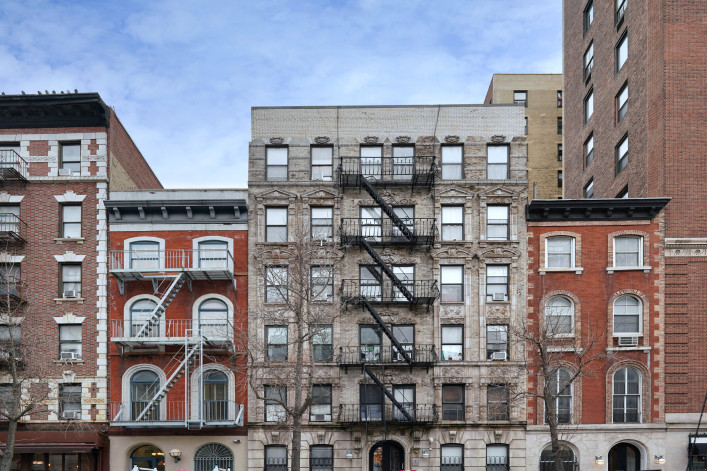Both landlords and tenant advocates criticize tentative housing deal in New York state budget
- The budget contains a version of Good Cause eviction that would protect market-rate tenants from eviction
- Hochul’s announcement was light on details, so expect more budget news in the coming days

Lawmakers are still negotiating other parts of the housing deal, such as a tax abatement for developers.
iStock
State lawmakers have reached “a conceptual agreement” on New York’s $237 billion budget, including additional eviction protections for market-rate renters and a new development tax credit, Governor Kathy Hochul announced Monday.
Hochul’s announcement managed to disappoint both landlord and tenant advocates on two key issues: Good Cause eviction and the replacement of the 421-a tax incentive for affordable housing development. Hochul couched the plan as the “parameters of a conceptual agreement,” and it’s still a little light on details.
The tentative deal comes two weeks after the budget was due on April 1st.
“I always ask the tough questions about housing and public safety,” Hochul said on Monday. “We had some very tough conversations about how to change the entrenched status quo. And as a result we have a budget that reflects New Yorkers' needs both right now and into the future.”
Digging into Good Cause eviction
The budget deal includes some protections for market-rate renters against eviction, but advocates lambasted the policy for carve outs they claim would exclude millions of tenants and make the enforcement of the rules impossible.
Good Cause eviction, a hotly debated policy since it was proposed in 2019, would allow market-rate tenants to challenge evictions resulting from “unreasonable” rent increases. The original bill defines an unreasonable rent hike as an increase greater than 3 percent of your rent bill or 1.5 times the regional inflation rate, whichever is greater.
The version of Good Cause eviction included in the budget, however, defines unreasonable as an increase of either 10 percent or 5 percent above the consumer price index, City & State reported. It would also give a 30-year exemption to new construction buildings, and exemptions to owner-occupied buildings with eight or fewer units, and to landlords who have fewer than 11 buildings in their portfolio, according to City & State.
Tenant advocacy coalition Housing Justice for All claims that those carve-outs, plus exemptions for buildings constructed after 2009 and for renters who pay more than $5,000 a month, would exclude 2.8 million tenants from the protections.
“This sham of a housing deal will not address the housing crisis—but it will ensure that the real estate industry keeps getting richer off the backs of hardworking tenants,” said Cea Weaver, Housing Justice for All’s coalition director, in a statement.
The organization also raised concerns that the new version of Good Cause eviction will let landlords to sidestep the additional protections by allowing evictions when a landlord wants to renovate the unit.
The tenants rights organization the Met Council on Housing, plus Congressional representatives Jamaal Bowman and Nydia Velázquez, also criticized the deal. And so did James Whelan, the president of the real estate trade association the Real Estate Board of New York, though he argued the provision went too far.
“While there were several modifications to the original legislation, Good Cause eviction will still create significant new risks for owners, developers and funders,” Whelan said in a statement. “We are confident that this package falls far short of addressing the city’s housing needs and must be reassessed in the coming years to put the rental housing market on a solid footing."
Reviving a tax break for affordable housing
Whelan similarly criticized a new tax incentive intended to spur affordable housing construction and replace the popular 421-a tax abatement program, which allowed developers to avoid property taxes over a set period of time in exchange for including rent-stabilized housing in their projects.
“The new tax exemption program for housing production, 485-x, will produce less rental housing than its predecessor,” Whelan said in a statement.
The exemption, dubbed 485x, will provide up to a 40-year property tax exemption in exchange for housing developments that create permanently affordable apartments. But lawmakers are still negotiating how affordable those apartments will be, The Real Deal reported.
The budget will also ease conversions of office space into housing, and lift a restriction that limits how densely a developer can build housing in NYC, though details on those two provisions are scant, The Real Deal reported.


























